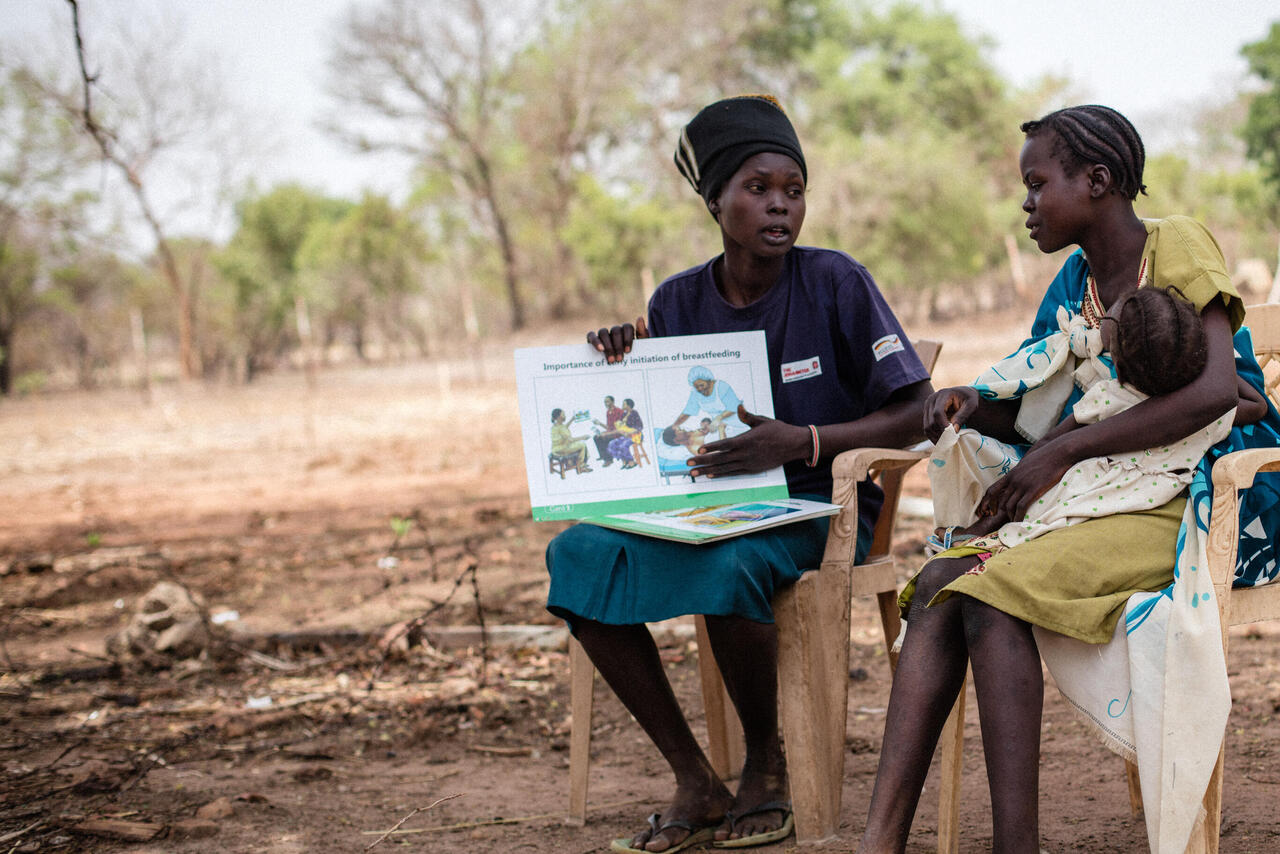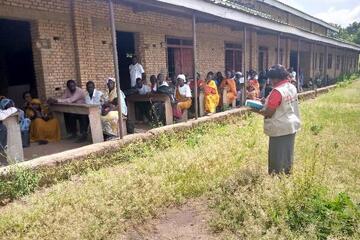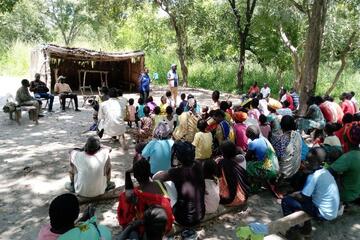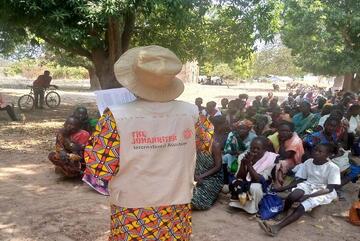Inequality fosters gender-based violence
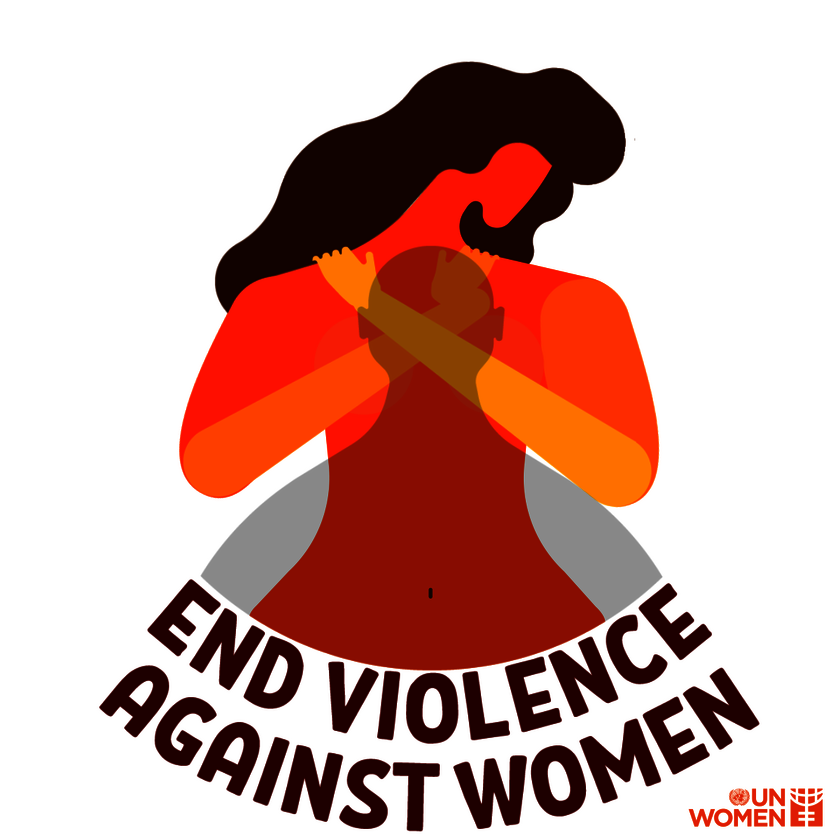
Berlin / Juba, 23 November 2021
Every year, 25 November is the international day to raise awareness about violence against women and girls. This year, our team in South Sudan is helping to organise the kick-off event in Western Bahr el Ghazal and raising awareness during the days of action that follow. In 2021 alone, the team helped 79 survivors of gender-based violence. Their numbers are increasing due to the dire situation in the country.
Gender-based violence (GBV) is not just physical and sexual violence. If women and girls do not have the same opportunities to lead a fulfilled life, this aspect is also part of the violence. In South Sudan, gender-based violence is deeply rooted. The high rate of illiteracy among girls and women, child marriages, high maternal mortality or limited livelihood opportunities are considered indicators that gender inequality exists. Stopping this violence starts with believing survivors, adopting comprehensive approaches that tackle the root causes, transform harmful social norms, and empower women and girls.
Food insecurity and income situation foster increasing violence
Sexual violence is particularly widespread in the crisis and conflict areas of South Sudan. In the ongoing Corona pandemic, the numbers have increased. Even after displacement, women and girls continue to be threatened, and boys and young men are also among the survivors. It is not uncommon for GBV survivors to be affected by multiple forms of violence at the same time. Although it is difficult to establish a valid data base on the extent of the problem in South Sudan, all stakeholders agree. The risk of gender-based violence in any form has increased due to food and income insecurity.
79 GBV cases accompanied and referred
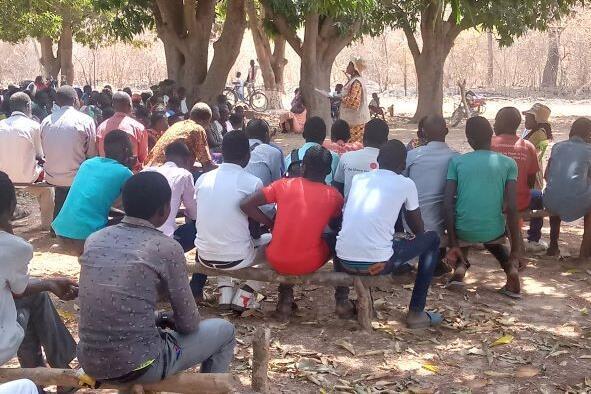
From January to October 2021, the Johanniter team in the project area in the state of Western Bahr el Ghazal registered 79 GBV cases, of which 65 were women of all ages. Eleven experienced rape. two people experienced sexual assault, three victims were subjected to physical assault and 18 people experienced psycho-emotional abuse. "All 79 victims received psychosocial support. 55 were referred to medical services and 42 to services for legal assistance," says Viola Philips. She leads Johanniter's efforts in this area. "More than a dozen victims still needed protection or safe shelter after the incidents, which we facilitated."
Goal: Advocating for an Anti-GBV Bill
Johanniter in South Sudan will join other organisations in 2021 to raise voices against GBV in South Sudan and globally during the 16 Days of Activism. The commemorative days will be held in all 10 states of the country and organised in partnership with the Ministry of Gender, Children and Social Welfare to raise awareness and create the legal and policy framework to prevent violence against women and girls. Under the slogan "Take Action: Be Accountable - End Violence Against Women and Girls", the event highlights the need to ensure sustainable funding for prevention activities and combating violence against women and girls in South Sudan. Among these is advocacy for the passage of an anti-GBV law.
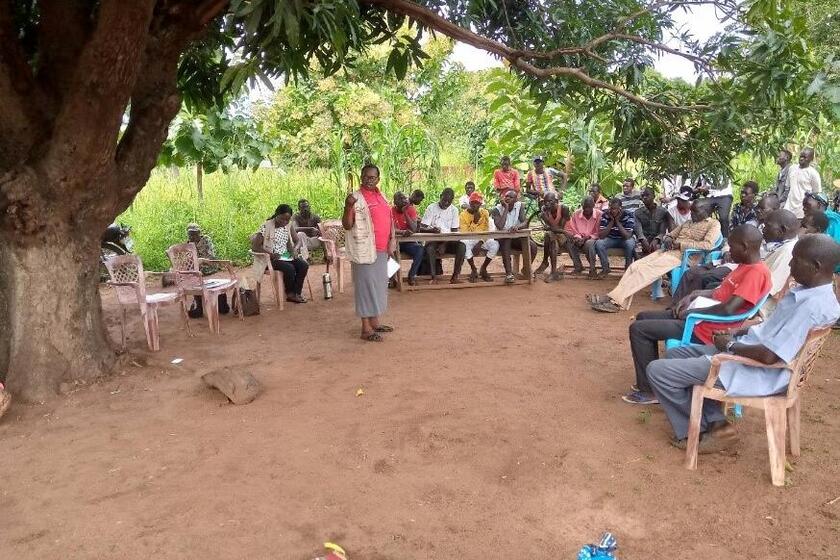
27-year-old survivor from Baggari village

My case happened on 26 April in Baggari-Farajalla Payam, when I was invited by one of our group members to the traditional community cultivation. When we finished in the garden, the owner still invited us to eat and drink. Afterwards, I went home to do my own work. However, around 7 pm, an unknown man came while I was resting in my room. He entered the room, grabbed me forcibly and had sex with me without my consent. My husband was not at home, I screamed and cried loudly, but no one heard my voice because the houses are scattered in our area. After that, the man ran away.
The next morning I decided to tell Johanniter about it, who are responsible for our community, especially since I am a nursing mother. I asked for help. The GBV case officer at Johanniter, Andrew Bernerdo, advised me and presented all the services available. After assessment, I was referred to the One-Stop Centre at Wau Teaching Hospital. There I was treated and received legal advice, among other things. I personally appreciated the support and also the staff who supported me from the beginning to the end of my case. If something bad happens in my area regarding violence against women, I will act as an ambassador for other people by encouraging them to contact Johanniter.
